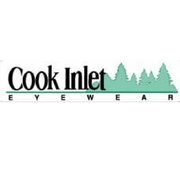
Sunglasses are a must-have summer accessory, but you should be shielding your eyes from the sun year-round. Photokeratitis, also called snow blindness, is a condition that causes pain and temporary vision loss. Contrary to its name, it often occurs without snow. Sand and water have the same effect and are also highly reflective of ultraviolet radiation. Here’s what opticians want you to know about this condition as well as how to prevent it.
What Is Snow Blindness?
Definition
Photokeratitis is inflammation of the cornea as a result of overexposure to the sun’s UV rays. It is essentially a sunburn of the eye. The term “snow blindness” is widely used because the condition is common among people who ski and snowboard. Snow can reflect up to 80% of UV rays, and snow sports typically take place at high altitudes where exposure to the sun is more direct.
Symptoms & Treatments
 Symptoms of a sunburned eye can include light sensitivity, pain, a burning sensation in the eyes, blurry vision, watery eyes, headaches, swelling, and redness. Most of the time, these symptoms go away within 48 hours. Treatment options include using eye drops to lubricate the eye and wearing sunglasses to mitigate light sensitivity. You can apply a wet cloth to the eye to reduce inflammation and lessen pain with an over-the-counter medication. If symptoms persist for longer than 48 hours, schedule an appointment with an optician.
Symptoms of a sunburned eye can include light sensitivity, pain, a burning sensation in the eyes, blurry vision, watery eyes, headaches, swelling, and redness. Most of the time, these symptoms go away within 48 hours. Treatment options include using eye drops to lubricate the eye and wearing sunglasses to mitigate light sensitivity. You can apply a wet cloth to the eye to reduce inflammation and lessen pain with an over-the-counter medication. If symptoms persist for longer than 48 hours, schedule an appointment with an optician.
Prevention
The best way to prevent snow blindness is to wear eye protection whenever you spend time outdoors, even on overcast days. Find lenses with 100% UV protection. If you’re playing sports, including bicycling, running, skiing, and snowboarding, wear gear with wraparound protection that will not fall off. Goggles and wraparound frames will also protect your eyes from dirt and debris that can scratch the cornea. If you have prescription lenses and don’t like to wear contacts, visit your optician for prescription sunglasses or transition lenses.
Protecting your eyes from the sun’s UV rays is essential for lifelong optical health. If you’re an Anchorage, AK, resident, turn to Cook Inlet Eyewear for high-end glasses. These local opticians carry a broad range of eyeglasses and contact lenses, including designer brands like Bellagio® and Lafont®. Call (907) 276-1021 to speak with a friendly team member, or visit the website to see their full list of brands and services.
About the Business
Have a question? Ask the experts!
Send your question

